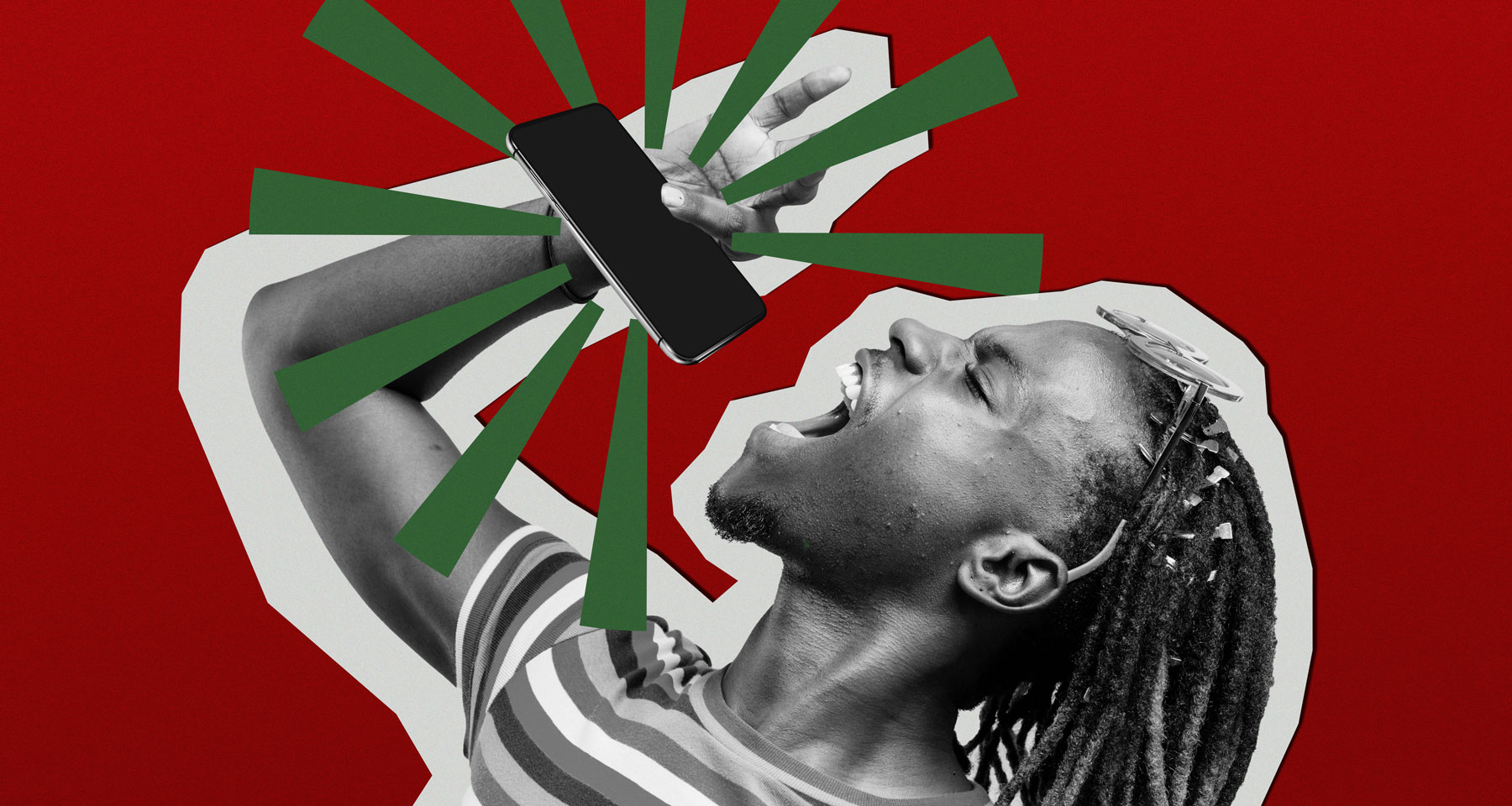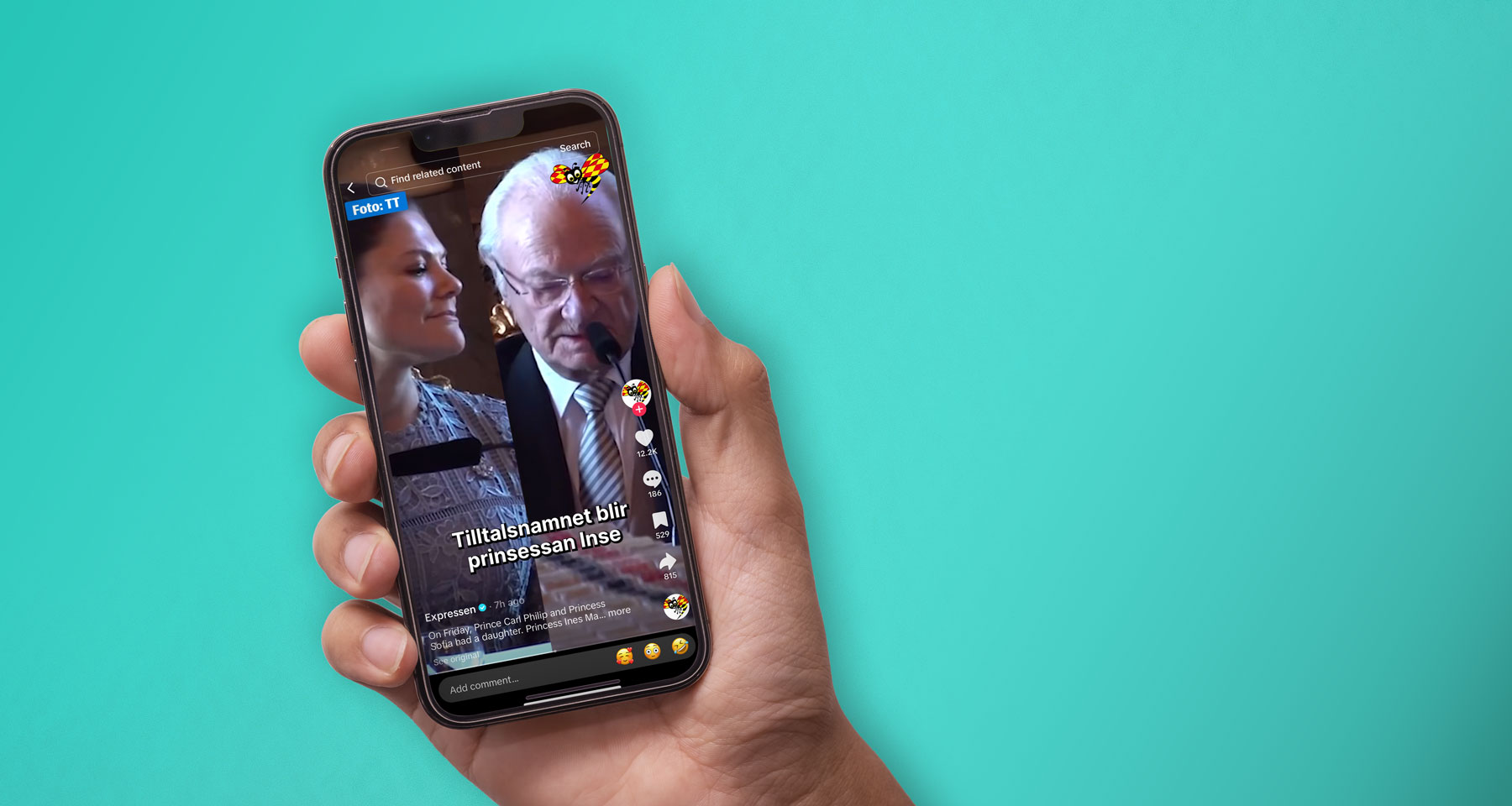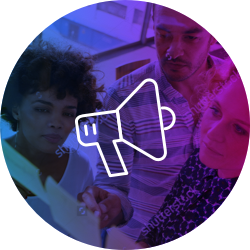Culture is the difficulty with transformation in African newsrooms
Conference Blog | 09 September 2025
African newsrooms face structural challenges yet also have the potential of AI and emerging technologies to reshape storytelling, audience engagement, and newsroom operations.
Carole J. Kimutai, head of editorial and visual storytelling at Burson Africa, offered an overview of the current state of journalism on the continent at the recent INMA Africa Summit Product & Tech Summit.
Her message was clear: The media landscape is evolving rapidly, and Africa must adapt not only to survive, but to lead.
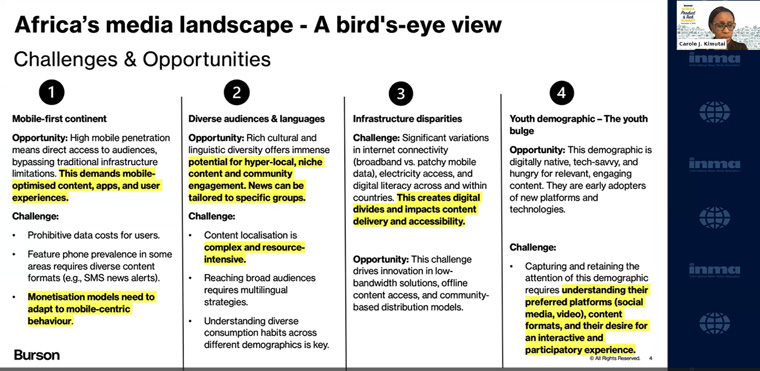
Mobile-first but not mobile-ready
Kimutai began by acknowledging Africa’s mobile-first reality. With millions accessing news via smartphones and feature phones, publishers must prioritise mobile-centric content formats.
But there are hurdles for mobile, such as high data costs, unreliable connectivity, and limited infrastructure.
“There’s a big digital divide driven by mobile connectivity, electricity access, and digital literacy,” she noted, adding there is a movement to connect 300 million Africans to electricity by 2030.
“So that tells you the gap in terms of electricity alone, and then there’s broadband and mobile connectivity.”
Depending on where they live, consumers may have access to 2G, 3G, 4G, or 5G. Without reliable infrastructure, even the most innovative digital strategies risk falling short. But Kimatai pointed to a silver lining:
“It gives us an opportunity for innovation, and that’s where you’re seeing a lot of conversations in terms of renewable energy; how do we get people connected on the grid? How do we get mobile handsets that are enabled for people who don’t have a steady Internet connection?
“It is an issue and an opportunity.”
Language, culture, and the cost of hyperlocal journalism
Africa’s linguistic diversity presents both a rich opportunity and a logistical challenge. With over 100 million Swahili speakers in East Africa alone — and countless other regional languages — Kimutai emphasised the need for hyperlocal content.
“Africa is a very colourful continent, full of rich culture, linguistics, so many languages,” she said.
But tailoring news to diverse audiences requires significant investment in multilingual talent, tools, and strategy.
“And of course, reaching all those audiences requires very many strategies and tools to help us understand their habits, user consumption, and the demographics,” she said.
The need for cultural transformation
Kimutai also emphasised the importance of overcoming traditional newsroom culture and embracing a forward-looking mindset. She described legacy thinking as one of the most persistent obstacles to digital transformation.
“We have this ingrained mindset, a traditional way of thinking that this is how it’s supposed to be; this is how we’ve always done it,” she said. “Yet when you look at the numbers, we are seeing a declining revenue stream and a declining audience. So we actually are suffering because it means we are not making decisions the way they need to be done.”
Culture is the most significant “disease” in newsrooms and the missing piece in digital transformation, Kimutai said.
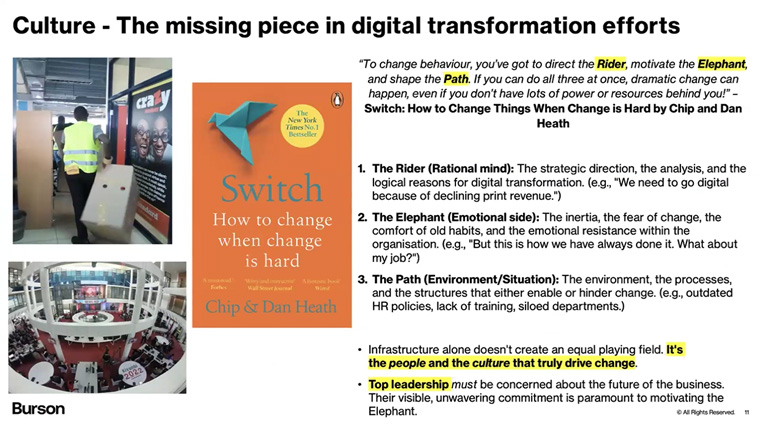
Kimutai referenced her experience leading a digital transformation at Standard Group and said “one of the things that ate our breakfast was strategy.” Despite investing in new facilities and tech, the initiative faltered due to internal resistance and a lack of buy-in from leadership.
She urged news publishers to embrace a holistic change model that addresses mindset, emotional resistance, and operational pathways.
“You have to shape the path, the environment, the processes, and the structures,” she said. “And the environment needs to be conducive for this change. Otherwise, you’re not moving anywhere.”
Inside the “ad tech tsunami”
Global tech giants like Google and Meta have mastered user experience, data analytics, and monetisation at scale. African publishers, by contrast, often lack the tools, talent, and infrastructure to compete.
Kimutai urged media houses to invest in their own platforms, data teams, and AI capabilities to reclaim control over audience relationships and revenue. They need to become experts at data and analytics and understand how and when their audience consumes content.
“Editors should be best friends with data scientists,” she said. “They should sit side by side. These are the people who should help us make decisions, people we should consult all the time.”
Using AI as an ally
Kimutai’s most forward-looking insights centred on AI’s potential to streamline operations and enhance storytelling. She outlined four key opportunities:
-
Automated transcription and translation. AI can help transcribe and translate content into local languages, making journalism more accessible and inclusive.
-
Audience segmentation and personalisation. AI-powered analytics can help tailor content to user preferences, improving engagement and retention.
-
Automated fact-checking. With misinformation on the rise, AI tools can assist in verifying claims, flagging hoaxes, and strengthening newsroom credibility.
-
Content summarisation and SEO optimisation. AI can generate concise summaries and keyword-rich content, boosting discoverability and reducing manual workload.
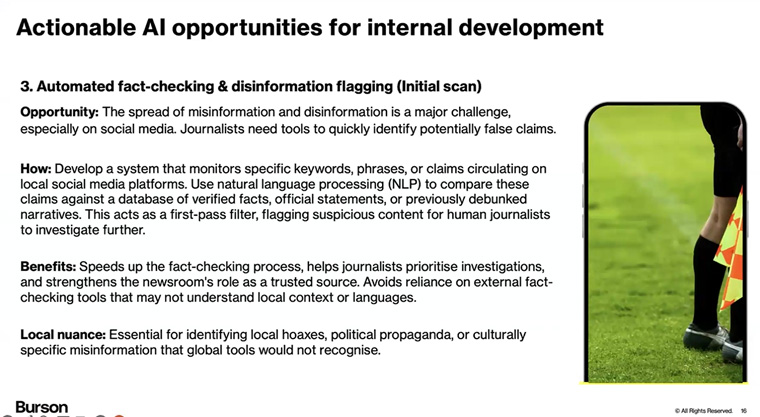
She underscored the importance of developing in-house tools to protect sensitive data and preserve local nuance: “I tell people that AI is my assistant. It’s like an intern and I train it to speak and write the way I speak and write.”
Looking to the future — today
Kimutai closed with a firm reminder for all newsroom leaders: “Africa demands African solutions.” She called on media leaders to invest in tech talent and look to the future rather than staying rooted in tradition.
“You have a choice. You can either adopt, innovate, lead, or be left behind. Tech is not optional, and tech is here to stay. So what are the opportunities that you can ride on?”






